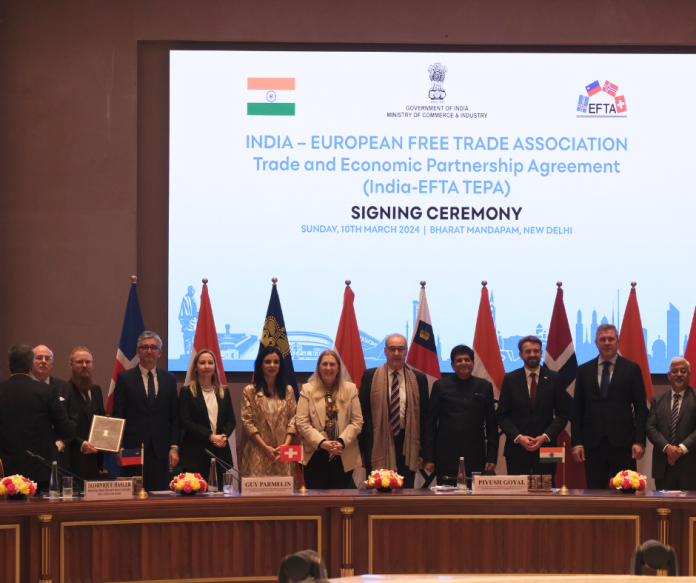Today, the European Free Trade Association (EFTA) States – Iceland, Liechtenstein, Norway, and Switzerland – and India signed a Trade and Economic Partnership Agreement (TEPA). The landmark agreement between India and EFTA is set to bring significant economic benefits, such as better integrated and more resilient supply chains, new opportunities for businesses and individuals on both sides leading to increased trade and investment flows, job creation, and economic growth.
At the signing ceremony, Federal Councillor Guy Parmelin, speaking on behalf of the EFTA Member States stated that “EFTA countries gain market access to a major growth market. Our companies strive to diversify their supply chains while rendering them more resilient. India, in return, will attract more foreign investment from EFTA, which will ultimately translate into an increase in good jobs. […] All in all, the TEPA will allow us to make better use of our economic potential and create additional opportunities for both India and the EFTA States”.
The agreement enhances market access and simplifies customs procedures making it easier for Indian and EFTA businesses to expand their operations in the respective markets. The agreement further aims to facilitate and promote investment opportunities between the Parties.
The EFTA-India TEPA was signed by Shri Piyush Goyal, Minister of Commerce & Industry, Consumer Affairs & Food & Public Distribution and Textiles of India; Guy Parmelin, Swiss Federal Councillor and Head of the Federal Department of Economic Affairs, Education and Research; Bjarni Benediktsson, Minister of Foreign Affairs, Iceland; Dominique Hasler, Minister of Foreign Affairs, Liechtenstein and Jan Christian Vestre, Minister of Trade and Industry, Norway.
The signature of this agreement marks a significant milestone in the relationships between the EFTA States and India. It reflects the culmination of dedicated efforts to foster a deeper economic partnership, underscoring the importance of dialogue, cooperation, and mutual understanding.






